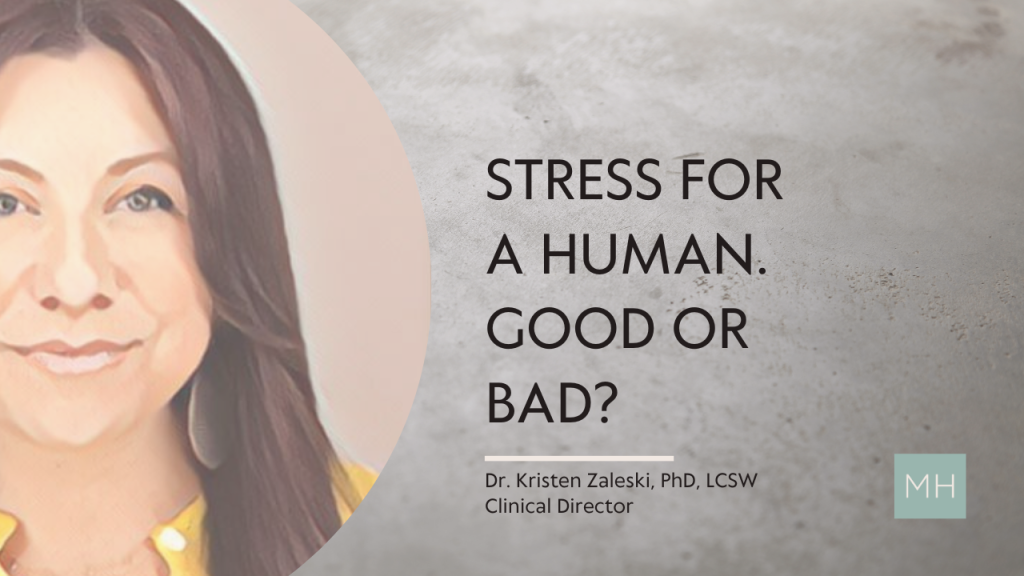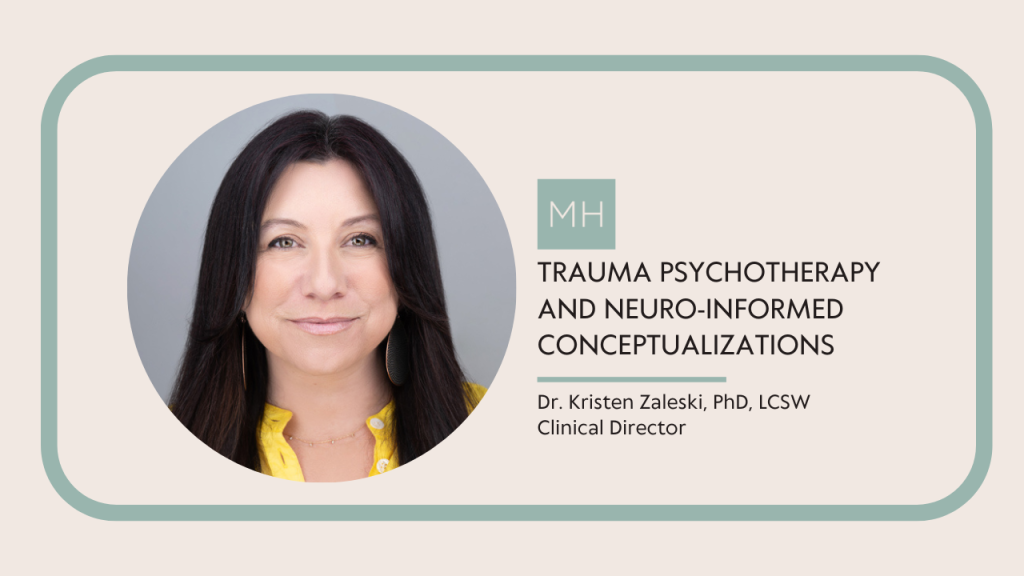SECONDARY STRESS + VICARIOUS TRAUMA
Dr. Kristen Zaleski talks about the mental health issues an individual may struggle with after experiencing Secondary Stress or Vicarious Trauma. Click into the interview to hear Dr. Zaleski address why teaching self-care strategies is important for preventing long-term stress responses.
INTERVIEW WITH DR. KRISTEN ZALESKI, PhD, LCSW
THE NERVOUS SYSTEM
Through neuroscience, we understand that our nervous system is affected by stressful events. When you are a helper, which is a therapist or for many of our clients, their physicians, or in other frontline physicians, not only your nervous system is affected by stress, but your nervous system is affected by another person’s nervous system. So you’re working with someone who’s just been through a traumatic event, is maybe seriously struggling with a trauma that’s happened to them, and you’re providing help. Your nervous system will get stressed as their nervous system gets stressed, and your nervous system will down-regulate as theirs does. This is the sign of a really good therapeutic or healthcare relationship. You’re connected. Some people describe this as empathy, that we can sink into another’s lived experience and our body responds and our brain understands that this experience that I’m having is not my own. It’s yours, but I’m with you.
SELF-CARE
That can cause what we call secondary stress or vicarious trauma when you deal with it all the time. We not only teach the importance self-care strategies here through somatic interventions and things like mindfulness and yoga and sound bath and good exercise and cardio, but during the weekends too, when there’s no formal therapeutic interventions, we’re encouraging them to journal, write poetry, take those walks, and even just spend time by themselves to reregulate, and we want our clinicians to do the same. If you don’t understand the nuances of your nervous system and how it ebbs and flows and how it’s affected by others, you develop longer-term stress conditions like PTSD, even though you might have never experienced a trauma firsthand. Just you being a helper to other people who can impact your nervous system for the long run. Self-care strategies and teaching people who have never learned those is really key to preventing those long-term stress responses.
DO YOU HAVE A QUESTION?
Send our team a message or call 888.717.9355

